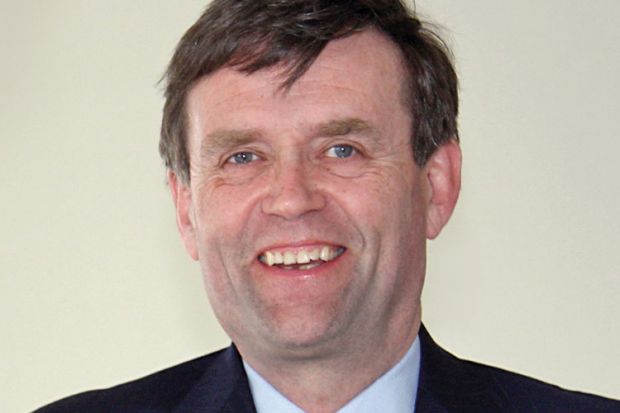I was the first person in my family to go to university, which has had a profound influence on the way I think and work with other people
Steve Egan is deputy chief executive of the Higher Education Funding Council for England, where he has worked since 1996. On 1 May, he takes up the post of vice-president (implementation) at the University of Bath, where he is an alumnus, having graduated with an MBA. He is also a long-time Bath resident
Where and when were you born?
I was born in Southwark, London, in 1958. I was the eldest child, with a brother and sister who are twins.
How has this shaped you?
I am a lifelong Crystal Palace fan, which has meant that I have learned to deal with the ups and downs in life. I was the first in my family to go to university, which has had a profound influence on the way I think and work with other people.
What do you hope to achieve at Bath?
The University of Bath is a very successful university with some very special people. I hope to bring a different perspective that will help the university build on that success. It is a new role with a strategic perspective – it will be up to me to make the most of the opportunity.
What were your motivations for taking up the role?
My biggest motivation at Hefce has always been the chance to make a contribution to the inspirational work that universities do to transform lives (including my own) and advance knowledge. I have enjoyed the time my job has allowed me to spend within universities. I now have the chance to do this all the time. I hope my policymaking insights will help the university shape its future strategy.
It’s been quite a tumultuous period for university finances in recent years, culminating in the research excellence framework. Are you leaving Hefce satisfied with your work at there?
I am very pleased with what has been achieved. I have worked with some outstanding people who deserve much of the credit for this, both within Hefce and the sector. It is very satisfying to see some of the projects that I have worked on deliver results, sometimes in ways that were difficult to predict.
Labour’s pledge to cut tuition fees to £6,000 has concerned many vice-chancellors in England. What will the consequences of any tuition fee reduction be for university finances?
It is difficult to tell. It will depend on how much grant funding replaces the lost tuition fee income and how that will be distributed.
What’s the biggest problem with the current funding system?
The biggest problem is the uncertainty of what comes next.
What is the most pressing concern for the sector ahead of the general election?
Providing funding and legislative and policy direction. This is probably true before every general election, but it is heightened by the need for any future government to address the fiscal deficit.
If you were a prospective student facing £9,000 fees, would you still go to university?
Without question I would go again. Not because of the career advantages, although they are considerable, but because I learned so much about the world and myself. However, I might spend more time choosing my university and course, as a mistake would be costly. That said, I would make the same choice.
Do you worry about the sustainability of university finances?
It was my job to worry, and I still do, but universities have managed the turbulent times very well. They are adaptable and resilient. The challenges of the future may be very different from those of the past so there is no cause for complacency, hence my continued concern.
If you were the UK universities minister for a day, what policy would you immediately introduce?
A three-year financial commitment to reduce uncertainty for universities.
As a child, what did you want to do when you grew up?
I had two ambitions: to be a policeman or a professor. As a child, I always had my head in a book so I got the professor reputation in my family. I am not sure I would have been suited to the demands of the constabulary. I will never become a professor, but I have retained my love of learning new things.
What advice would you give to your younger self?
Take more risks and be less serious.
What keeps you awake at night?
Staying in hotels where the ventilation is poor or the walls are thin.
To what, or whom, do you feel most allegiance?
I am a Christian so I have a strong allegiance to my faith. I also have a wonderful wife and two talented children. We have strong commitments to each other.
What do you do for fun?
I officiate American football games.
Rugby or National Football League?
That’s quite difficult to answer as I am a season ticket holder at Bath Rugby and have followed American football for more than 30 years. I hope I never have to make the choice but, if pushed, it would be the NFL.
Register to continue
Why register?
- Registration is free and only takes a moment
- Once registered, you can read 3 articles a month
- Sign up for our newsletter
Subscribe
Or subscribe for unlimited access to:
- Unlimited access to news, views, insights & reviews
- Digital editions
- Digital access to THE’s university and college rankings analysis
Already registered or a current subscriber? Login

